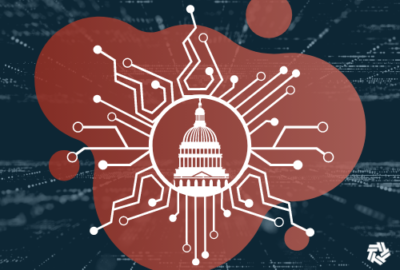Federal Data Strategy 2021 action plan sets cross-agency goals on AI, upskilling workforce
The Federal Data Strategy development team, led by the Office of Management and Budget, released the strategy’s 2021 action plan Friday, setting new interagency...
The Biden administration is directing agencies to work together on common data challenges — including accelerating the use of artificial intelligence in government and stemming wildfires — as part of the Federal Data Strategy.
The Federal Data Strategy development team, led by the Office of Management and Budget, released the strategy’s 2021 action plan Friday, setting new interagency goals for the year, while also assessing the progress agencies made under the last year’s action plan.
The 2021 action plan asks agencies to determine how much foundational work remains before they can shift into the next phase of the Federal Data Strategy — enterprisewide data standards and coordination of data, as well as using data to inform annual budget planning.
The administration expects agencies to start addressing those enterprisewide goals starting in 2023.
The Federal Data Strategy sets a 10-year vision for the state of data infrastructure in government. OMB expects agencies to optimize self-service data analytics capabilities starting in 2026.
Starting in 2029, the strategy expects agencies to reach the final stage of the strategy where they make proactive evidence-based decisions and automate data improvements.
The latest action plan sets deadlines for Dec. 31, but OMB acknowledges that given the timing of the release date, agencies will probably only get started on some of these “aspirational milestones” before the end of the calendar year.
Data Foundation President Nick Hart said the 2021 action plan marks “yet another sign of the continued maturation and leadership of federal chief data officers.”
He said the action plan also builds on recommendations and advice provided in a public forum hosted a year ago by the Data Coalition and data experts from industry and academia.
“The Data Coalition members appreciate that the action plan focuses on improving the data skills of the federal workforce and emphasizes the leadership role from the data, evaluation, and statistical officials created by the Evidence Act,” Hart said. “There are still many barriers to using data in government, but with leadership from the federal CDO Council and sustained resources, we will be more likely to realize the benefits of evidence-informed policy in practice.”
The latest action plan also gives added flexibility for agencies to complete goals in the 2020 action plan that have not been fully met.
The 2021 action plan outlines 11 goals for agencies to meet. Notable additions include “shared solution actions” that require input from multiple agencies to reach shared goals.
Among these shared solutions, the action plan tasks the Interior and Agriculture Departments to share data with other federal and state land management agencies to respond more effectively to wildfires.
It also tasks all agencies with documenting artificial intelligence use cases and significantly increasing AI expertise across the federal government and further investing in high-value areas of geospatial data infrastructure.
The State Department recently released a Geospatial Data Strategy, following the release of a broader Enterprise Data Strategy.
The Federal Geographic Data Committee has also developed a National Spatial Data Infrastructure Plan that sets overarching goals to ensure this data supports agency missions and spurs economic growth. The council maintains a platform that makes national geospatial data assets available to the public.
CDO Council developing workforce playbook
The 2021 action directs the Chief Data Officer Council with developing a data-skills workforce development playbook that will give agencies a roadmap for running data-skills training programs.
The strategy notes the Office of Personnel Management expects to issue a new data scientist job series later this year to facilitate the hiring of candidates with the appropriate skillsets. OPM first announced it was working on the job series in 2019, and highlighted it as a tool that would help agencies more easily recruit in-demand data talent.
Several interagency efforts this year have helped improve the data literacy of the federal workforce. The Chief Information Officer Council and CDO Council are creating tools to assist agencies with upskilling employees for data skills, and the Interagency Council on Statistical Policy (ICSP) is leading training and mentoring programs.
Additionally, the CIO Council has released materials for agencies to build their own data-science training programs. The General Services Administration also released a data skills catalog outlining case studies of agencies upskilling their employees.
Meanwhile, the first cohort of 61 federal employees to enroll in the OMB’s data science upskilling effort graduated from the program in May.
‘Lack of published guidance’ hampered progress
The latest action plan also urges agencies to continue gathering data needed for agency learning agendas, improving data governance and building governmentwide data dashboards.
The 2021 action plan recognizes varying levels of data maturity at agencies, and that some agencies had an easier time meeting last year’s goal than others.
The latest action plan also acknowledges some milestone dates in the 2020 action plan “were unachievable because of a lack of published guidance.”
“The increased flexibility for 2021 encourages agencies to tackle areas that best serve their mission (e.g., for some agencies it may be data governance, while for others it may be workforce development or data management and interoperability) and learn from each other throughout the process,” the action plan states.
OMB said future action plans will focus on a coordinated and collaborative approach to federal data stewardship, and tasks the CDO Council with carrying out much of this work.
“The newly formed CDO Council will continue to foster information-sharing and cross-agency collaboration among CDOs. Sustained cross-council collaboration will facilitate interagency partnership,” OMB wrote.
CDO Council chairman Ted Kaouk, speaking recently at the council’s first public meeting, said members are building a data foundation that’s essential for the administration’s biggest goals, including COVID-19 recovery, climate change and equity in government.
The council last year stood up a COVID-19 working group that shared the Department of Health and Human Services’ pandemic data across government, and worked with the State Department to create a dashboard on international COVID cases.
Copyright © 2025 Federal News Network. All rights reserved. This website is not intended for users located within the European Economic Area.
Jory Heckman is a reporter at Federal News Network covering U.S. Postal Service, IRS, big data and technology issues.
Follow @jheckmanWFED






